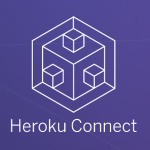About Heroku Connect
Heroku Connect is a data integration tool that uses bi-directional synchronization between Salesforce and Heroku Postgres to harmonize Postgres data your Salesforce information like contacts, accounts, and custom objects. Heroku connect includes a user-friendly, point-and-click interface so non-tech-savvy users can set up the service in minutes without coding or complicated configuration procedures.
About GoodData
According to the platform's marketing literature, GoodData's powers '50% of Fortune 500 companies, over 80,000 businesses, and millions of concurrent users.' With its motto, 'analytics for everyone,' the solution offers an easy-to-use, drag-and-drop analytics interface so anyone across your organization — regardless of their tech knowledge — can set up dashboards and explore business insights to collaborate with team members and make better decisions. The platform also includes out-of-the-box and customizable machine learning algorithms for advanced forecasting and analytics. Moreover, because GoodData can process large, complex, and siloed datasets, this BI solution can scale to handle virtually any size demand.
Popular Use Cases
Bring all your Heroku Connect data to Amazon Redshift
Load your Heroku Connect data to Google BigQuery
ETL all your Heroku Connect data to Snowflake
Move your Heroku Connect data to MySQL
Bring all your GoodData data to Amazon Redshift
Load your GoodData data to Google BigQuery
ETL all your GoodData data to Snowflake
Move your GoodData data to MySQL
Heroku Connect's End Points
Heroku Connect Synchronization of Apps Across Heroku and Salesforce
Heroku Connect allows you to build apps with open source stacks, natively integrate the apps with Postgres, and directly sync them with Salesforce. By integrating your Salesforce data with Heroku Postgres, it's easy to combine the power of the Lightning Platform with Heroku. Heroku Connect makes the process of building apps that bring your data and processes to your users as easy as coding in SQL.
Heroku Connect External Objects
Heroku Connect External Objects let you make your Heroku Postgres database information available inside your Salesforce deployment. This empowers you to synchronize your information across both platforms as you create, read, update, and delete data. By creating sophisticated applications inside Heroku and making the app data available to your Salesforce processes, you'll present a seamless experience in Salesforce, while all of your data stays inside Heroku Postgres. Moreover, configuring Heroku-Salesforce integrations for data pertaining to apps, sensors, customers, and products is a simple, point-and-click process that doesn't require any coding skills. Heroku External Objects combined with Salesforce Connect makes it easy to create a seamless experience across all of your business systems.
Heroku Connect Data Security Compliance
Heroku Shield Connect supports the development of applications that share sensitive data with Salesforce while complying with the strictest data security standards. Safely integrate CRM data, Protected Health Information (PHI), Personally Identifiable Information (PII), contact information, account data, and custom objects between Heroku apps and Salesforce. Heroku Shield Connect provides an easy pathway for building advanced applications that need to adhere to the most complicated data security regulations, including HIPAA compliance.
Heroku Connect Easy Application Development and Scaling
Through its compatibility with the most popular stacks and programming languages, Heroku Connect facilitates easy application development. Its add-on ecosystem includes your favorite development tools and databases (like New Relic, Mongo, and Redis) so you can use them with the applications you're creating. Through Heroku's proven infrastructure, which currently supports 26 billion daily transactions for massive consumer websites (such as Upworthy and Bonobo) virtually limitless scaling is available for high volume applications.
GoodData's End Points
GoodData Analytics, Dashboards, Visualizations
GoodData features dashboards that you can easily embed into your desktop or mobile applications, so your business insights and visualizations are accessible wherever you need them to be. The platform includes customizable, interactive visualizations and drag-and-drop analytics and discovery tools. It also features easy-to-set-up machine-learning algorithms for forecasting and better decision-making.
GoodData Embedded Analytics
GoodData allows you to tailor each of your customer's experiences with personalized, embedded analytics and data models. By putting more power into your customers' hands, the platform lets your more tech-savvy users design and publish their own reports, dashboards, and visual presentations. Moreover, after developing new analytical features, you can distribute updates seamlessly across tens of thousands of users at once, or you can centrally manage distribution and customize the updates and features that different product audiences receive.
GoodData Data Ingestion at Scale
GoodData's fault-tolerant data pipeline enables high-speed ingestion of terabytes of information for tens of thousands of users. The platform also helps you respond to issues through constant monitoring and alerts that integrate with your incident response systems. GoodData's pre-built modules for data ingestion, transformation, and distribution offer time-saving advantages. Set up your data transformations in SQL and JDBC, and modify GoodData's pre-built modules with Python, Ruby, and Java SDKs.
GoodData Scalability
GoodData is an enterprise-level solution that offers reliable, real-time processing and insights at scale — no matter how many clients — with a capacity to handle virtually any size dataset.
GoodData Security and Compliance
GoodData offers the latest in data security technologies and risk management features so any size company can meet its industry's compliance and information security requirements. GoodData's Security Shield system is the platform's basic-level security offering, which adheres to standard best practices for cloud-based data protection, including ISO 27001:2013 compliance, GDPR compliance, and SOC2 Type II. Meanwhile, Enterprise Shield Security is GoodData's higher-level security offering, which offers protection for enterprises handling extra-sensitive and/or strictly-regulated information.








